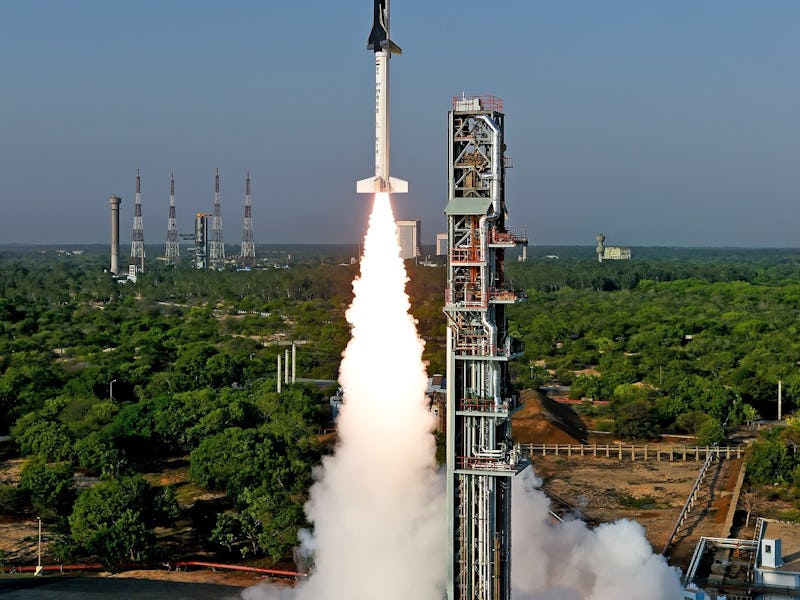India Has Just Launched a Small-but-Mighty Reusable Space Shuttle
The country is making serious strides toward making space exploration cheaper.

Bigger isn’t always better. Sometimes, the best innovation doesn’t come from thinking outside of the box, but thinking inside of it — maximizing the resources you’re limited to so you can still achieve something important. India is doing just that when it comes to space exploration.
Earlier this morning, Indian Space Research Organization, the space agency for Asia’s third biggest economy, launched a 22-foot “mini” shuttle — the Reusable Launch Vehicle — out into space.
It’s the first spacecraft India has built completely on its own, within the country itself. The shuttle went about 40 miles above the Earth’s surface before making a soft descent into the Bay of Bengal. The whole flight zipped by in just under 13 minutes, according to the ISRO.
The coolest thing about the ISRO’s launch is that it is the culmination of five years of work that required a relatively small $14 million investment. The old NASA Space Shuttle launches to the International Space Station used to cost a staggering $450 million each time. Furthermore, the vehicle is part of an overall effort to create an entirely reusable space launch system — meaning both the rockets and the vehicle itself can be used over and over, drastically reducing the costs of space exploration.
This is nothing new for India. The country also sent a probe to Mars in 2014 for just $74 million — 11 percent of what NASA usually spends to send its own spacecraft to the red planet. The country is pushing forward a space program that’s focused around cost-efficiency, maximizing research and development for a minimal amount of money and resources. That makes sense for a country with a poverty rate that was hovering around 30 percent in just 2012.
Strangely enough, this work doesn’t necessarily put India into direct competition with the other big state-run space agencies of the world (NASA, ESA, Roscosmos, etc.) Rather, it pits India against private space companies like SpaceX and Blue Origin that are attempting to make reusable rockets a common way of launching spacecraft into orbit and beyond.
India won’t be competing with NASA and others to send humans to Mars or build a colony on the moon. It will, however, be in a position to launch satellites and other objects into orbit at a phenomenally cheap rate, and perhaps work in conjunction with other private industries to help advance space-based technologies like GPS.